How police missed the chance to catch Emma Caldwell's killer
- Published
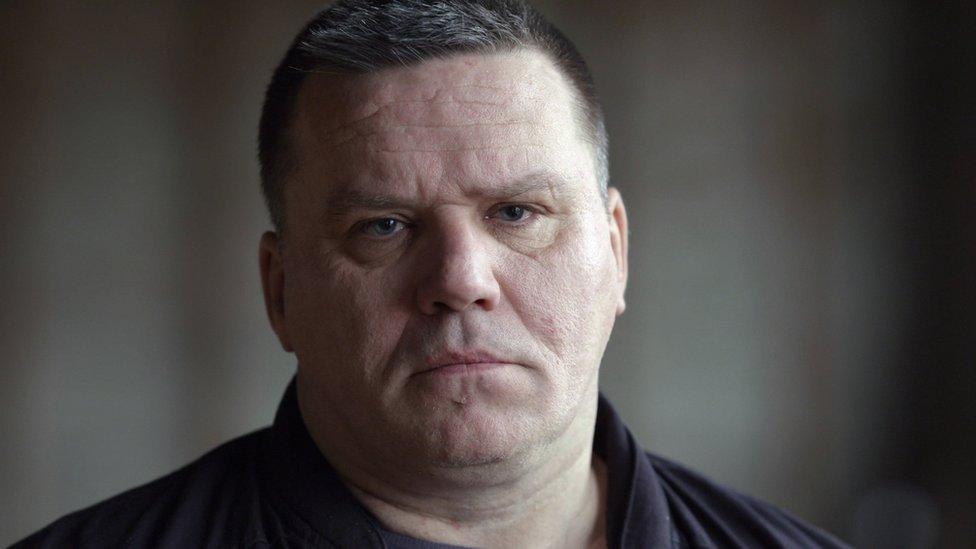
Police missed the chance to catch Emma Caldwell's killer in the months after her murder because senior officers repeatedly dismissed him as a suspect, BBC Scotland can reveal.
Iain Packer has now been found guilty of the crime, almost 19 years after Emma's body was found in a remote wood.
Four former detectives who were involved in the earliest stages of the inquiry say evidence of his violent, abusive and predatory behaviour was known to police from the start of their investigation.
But they say senior officers told them not to pursue Packer and instead wrongly built a case against four Turkish men - who were then cleared.
The case was one of Scotland's most high-profile unsolved murders until a BBC Scotland investigation paved the way for Packer's arrest.
Emma's naked body was found in Limefield Woods, 40 miles south-east of Glasgow, on 8 May 2005. The 27-year-old sex worker had last been seen in the city centre more than a month earlier.
Retired Det Con Stuart Hall took a statement from Packer for the first time on 22 June 2005, just weeks after Emma's body was discovered.
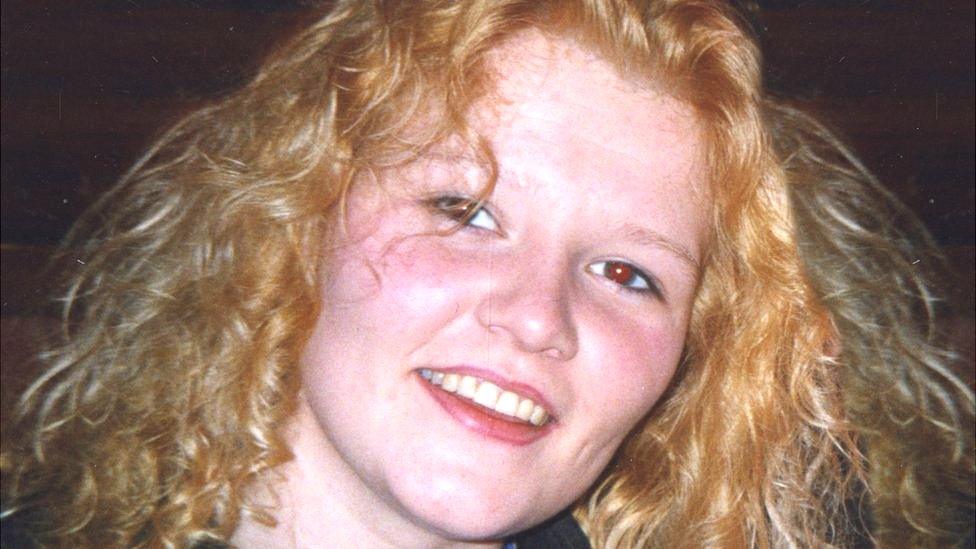
Emma Caldwell's body was found in a remote part of South Lanarkshire five weeks after she went missing
Packer initially maintained that he did not know Emma and did not use prostitutes.
However, several women had picked him out of photographs and Stuart Hall grew to believe that Packer was lying.
He asked a senior officer if he could detain Packer, so that his rights could be read and he could be interviewed as a formal suspect - but he says he was told no.
The former detective also took a statement from a woman called Pauline, who said a man had taken her to remote woodland an hour's drive from Glasgow for sex. She told police the man had forced her to strip, and sexually assaulted her.
Police finally asked Pauline to show them the location six months after she gave that statement. She took them to the exact woods where Emma's body was found.
She would identify the man who took her there as Iain Packer.
Retired detective Stuart Hall said he was told he could not detain Packer in the early stages of the inquiry.
The BBC can also reveal that in the months that followed Emma's murder, police took statements from three other women who said Packer had driven them to the remote woods for sex.
Another six women told of being raped and sexually assaulted by him in other locations, and he was identified as the man who had raped Emma in the months before her death.
But still, no charges were brought against Packer.
Both Stuart Hall and retired Det Con David Barr have told the BBC that the order not to detain Packer came from the inquiry's senior investigating officer, Willie Johnston.
Mr Johnston left the force in 2006. He declined to provide a comment to the BBC, beyond his hopes "that the forthcoming trial finally provides the answers the deceased's family have deserved for so long".
Iain Packer was spoken to by police a total of six times between 2005 and 2007.
During the fourth statement, in August 2006, he admitted to paying Emma Caldwell for sex, and said he had taken her to a remote spot in the woods.
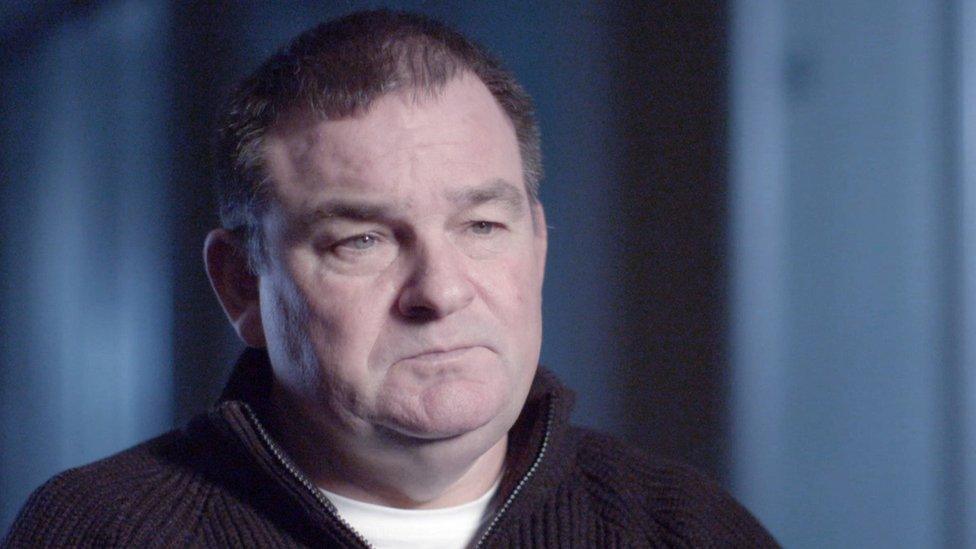
Retired Det Con David Barr says he was told Packer would never be an accused in the case
When Det Con David Barr, taking the statement, asked senior officers if he could detain Packer, he was also told no.
"I'm told… when you get Iain Packer and bring him in, it doesn't matter what he tells you - he won't ever be an accused in this case," he recalled.
During his sixth and final statement, Packer was asked by detectives to show them the exact location he had taken Emma. It was the same woods where her body had been found.
He was driven back to Glasgow - and police did not speak to him again for more than a decade.
Senior officers were instead focusing on four Turkish men who they believed had killed Emma.
In police attempts to gain conclusive evidence against these men, the highest level of intrusive surveillance possible was authorised, at considerable public expense.
Retired detective Mick McCarron remembers the certainty with which this case was pursued.
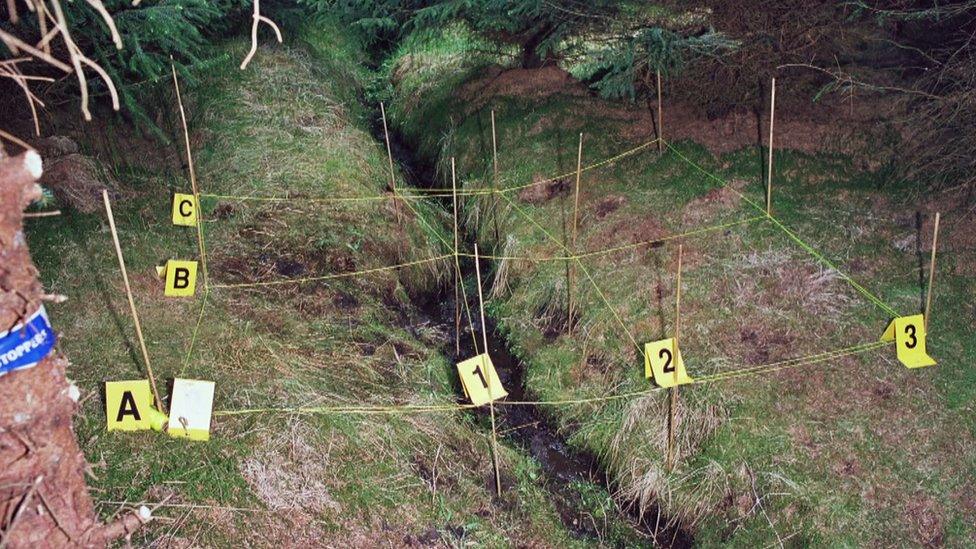
Emma's body was found in woods 40 miles outside Glasgow
He said the theory was that these men had killed Emma Caldwell in a Turkish café on Bridge Street in Glasgow.
"Anything else that we suspected had happened to Emma involving any other men, forget about it - these were the men that had done it."
In 2007, the four Turkish men were charged with the murder of Emma Caldwell.
Conversations taped as part of the covert surveillance operation formed the basis for the case against them.
When it was discovered that these conversations, translated from Turkish into English, had either been taken out of context, or simply translated wrongly, the case against them collapsed in 2008.
Retired Det Sgt Willie Mason claims senior officers did not want to lose face.
"If they were to turn round and say 'we have made a mistake here, we've spent all this public money,' their careers would've been finished - and they knew that. So they bluffed it out," he said.
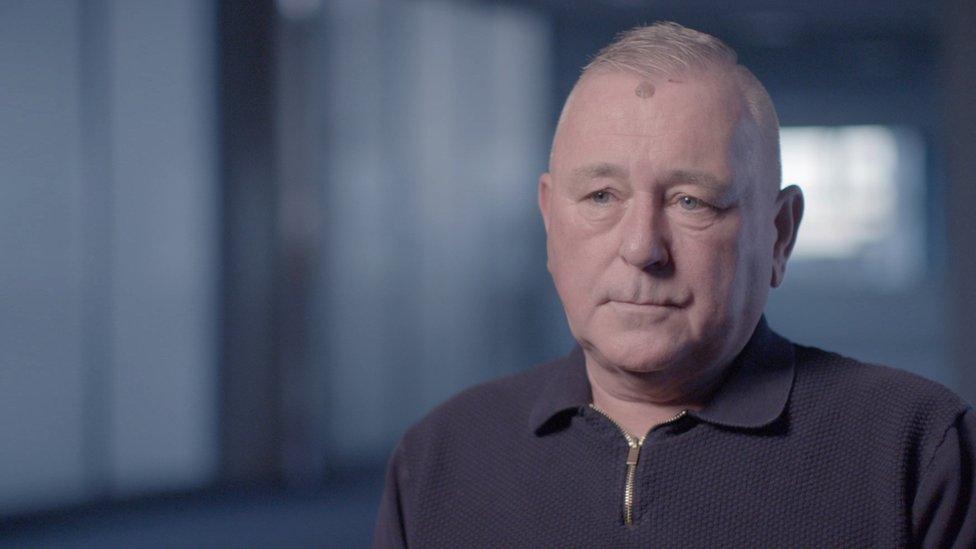
Retired Det Sgt Willie Mason said Packer had been given licence to continue his violence towards women
In a statement, Police Scotland said: "Emma Caldwell, her family and many other victims, were let down by policing in 2005. For that we are sorry.
"A significant number of women and girls who showed remarkable courage to speak up at that time also did not get the justice and support they needed and deserved from Strathclyde Police.
"Over seven years, a full review of the original inquiry by Strathclyde Police in 2005 was completed.
"We have reflected and learnt from the initial investigation and subsequent reinvestigation."
Emma Caldwell's murder remained unsolved. Even after police were ordered to reopen the investigation in May 2015, they did not look into Packer.
He might have remained a free man, had it not been for an interview he agreed to give about the case.
BBC Journalist Samantha Poling confronted Iain Packer during on camera interviews
Packer sat down with the BBC in November 2018. He said he wanted to clear his name. He said he had never killed Emma Caldwell, and had never hurt a woman in his life.
But our investigation thereafter uncovered the real Iain Packer - a serial offender who was a violent sexual predator towards women, a fact that had been known to police since 2005.
It was our encounter, and subsequent investigation into Packer, that helped lead to his arrest for Emma's murder. The litany of crimes he committed, before and after Emma's death, makes him one of Scotland's most prolific sex offenders.
In 2022, following our interview, police arrested Iain Packer for the murder of Emma Caldwell. He has now been convicted of the crime, along with dozens of other charges against women.
Retired Det Sgt Willie Mason says the decision by senior officers not to charge Packer earlier was catastrophic.
"They've caused one of the worst injustices… the fact that they actually gave licence to Iain Packer to continue his violence towards women."
The guilty verdict is an indictment of the man.
The fact it took 19 years is perhaps also an indictment of the police investigation which left a killer free to carry on attacking women for many years.



You can listen to the podcast series Who Killed Emma? on BBC Sounds.
